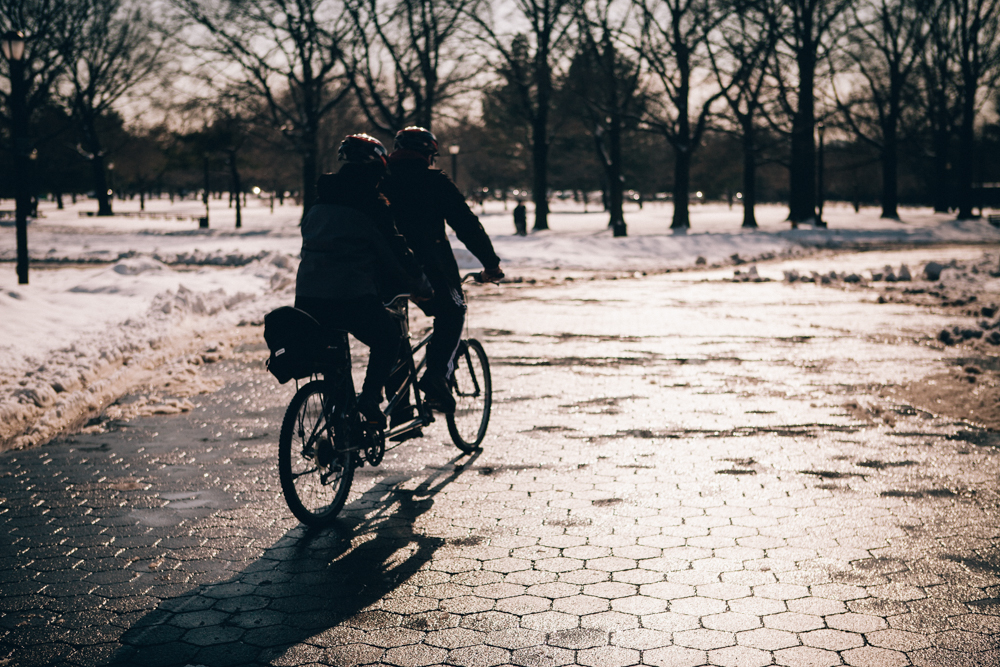February 26, 2015
Bike New Yorker #17: Maricar Marquez and Don Horvath
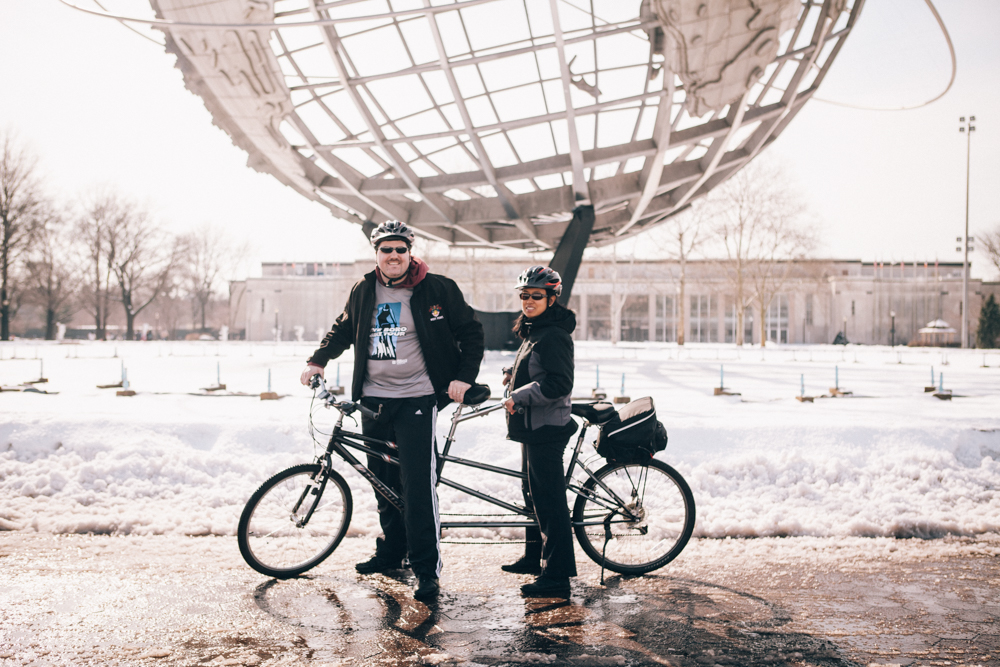
We meet some truly interesting riders every year at the TD Five Boro Bike Tour, but it’d be hard to beat Maricar Marquez and her husband, Don Horvath, for sheer inspiration. Maricar was born deaf and suffers from Usher Syndrome, which has left her almost blind—but that hasn’t stopped her from finishing past Tours with the help of her husband who, for this interview, translated our questions and her answers using tactile sign language (a remarkable thing to watch). Their story reminded all of us here at Bike New York that our work not only empowers the students at our free bike education classes, but can also improve the lives of the folks who participate in our events.
When and how did you guys meet?
Maricar: We met at work.
Don: We both work at the Helen Keller National Center. Yesterday was our 12 year anniversary!
Congratulations! Maricar, I hope you don’t mind me asking, but have you always been deaf and blind?
Maricar: I was born deaf. As I got older, I lost my vision. I have Usher Syndrome.
Don: When we started working together, she had vision. She could read the captions on TV. It wasn’t until about 2010 …
Maricar: I still have a little bit of vision, but I haven’t been able to read since 2011.
Maricar, did you know how to ride a bike before you lost your vision?
Maricar: Yes. When I was younger, I could bike by myself.
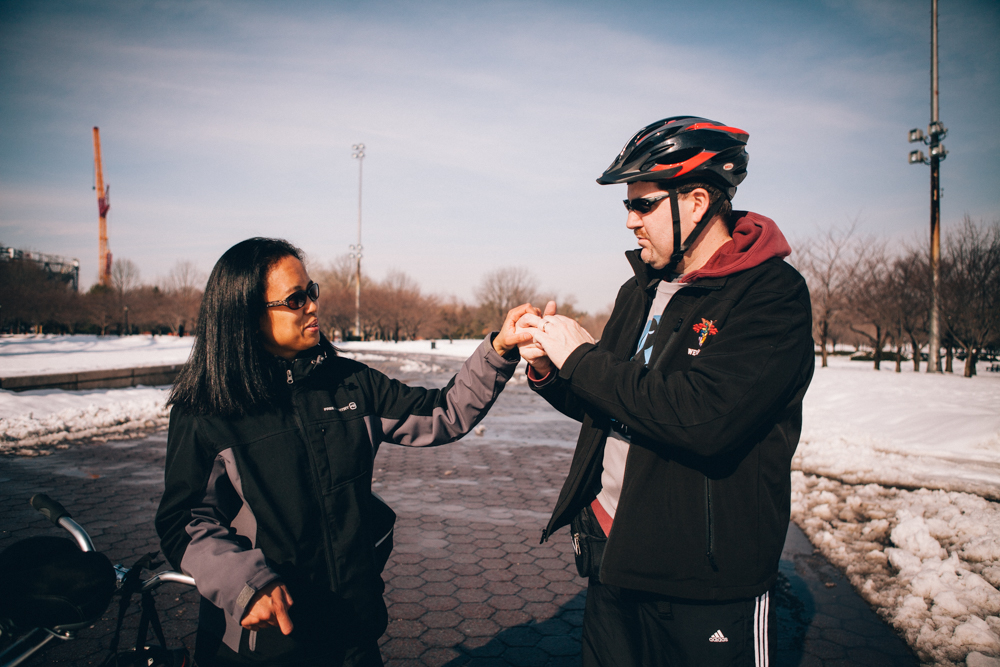
And you, Don?
Don: Oh, yeah! For many, many years. I had done the Tour before we got together. When we started dating, we were biking.
Maricar: Prior to us biking together, I was involved in many different Triathlons. I would bike, run, and swim. I was biking before Don and I got together, and then when Don and I were dating, we did the Five Boro Bike Tour… but we didn’t finish it the first time, because we had a lousy tandem bike that we borrowed from someone.
Don: We only made it to Queens. And then in 2005, we bought this bike—the Raleigh—and every year after that, we did the Tour together.
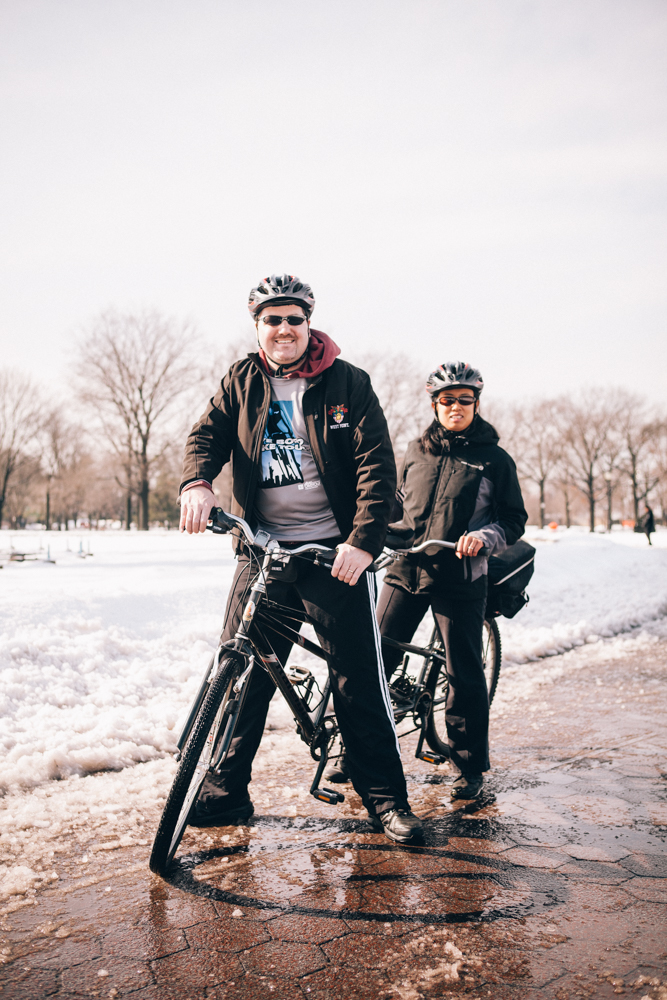
Maricar, what does riding a bike feel like when you can’t see or hear?
Maricar: I feel the wind, I smell all the different things… Don will communicate with me. He’ll finger-spell into my hand and give me feedback about the different environments. Or if we stop, when we have to get back on the bike, Don will bang on his handlebars.
Don: She’ll feel that, and then we’ll hop back on the bike. And when we’re riding, I’ll tell her, with my hands, where we are. Last year, during the Tour, when we were near the Verrazano Bridge, I tapped, “Soon: Finished.” And then I’ll squeeze her hand when we’re coming close to the finish. I’ll also squeeze her hand harder when I need her to pedal harder. (Laughs) Like, “Come on, you have to help me out here!”
Who does all the work?
Maricar: Don. I’m pedaling. We’re both pedaling. But more of the intensity is from Don. Oh—if I need to use the bathroom, I’ll write a “T” on his back.
Don: She’ll also tap me, and ask, “where are we?” And I’ll inform her: Queens, Manhattan, Brooklyn…
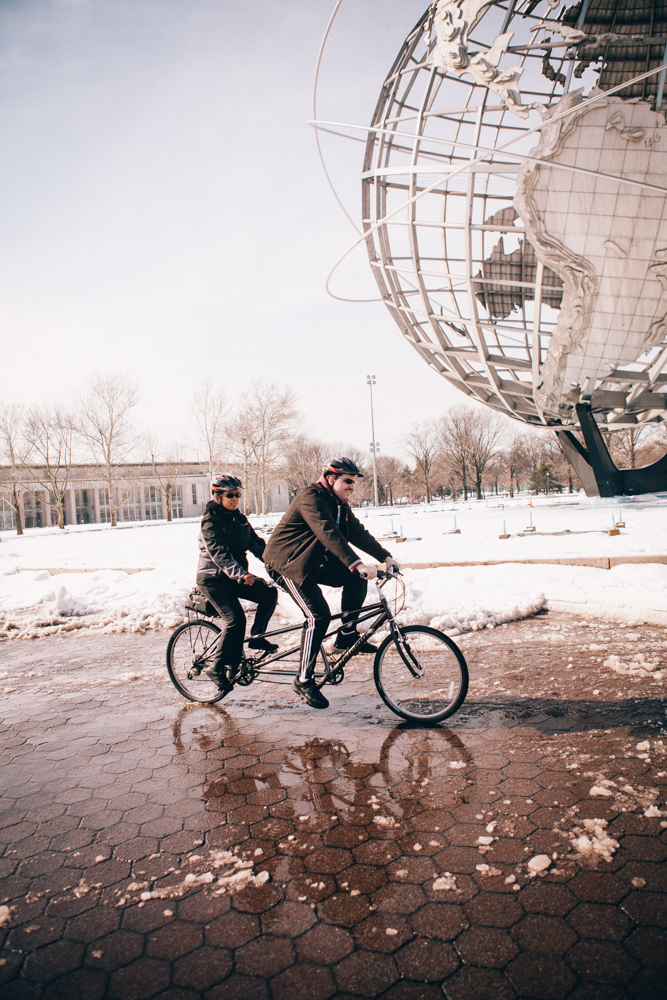
And you ride here, in Flushing Meadows Corona Park, sometimes?
Don: Yeah. We come here to practice, to train. But last year, we were just out for a ride, and I said, “Do you want to go to Manhattan?” So we made it to Manhattan, and I said, “Well, do you want to go to New Jersey?” And then we rode to New Jersey and we rode over the George Washington Bridge. Then she goes, “How many miles?” I said, “26 miles.” She goes, “It takes longer to get here by car!” That ride was something. It’s so narrow to go up on the George Washington Bridge, and then all those hills in Washington Heights… That was tough.
Maricar: Yeah, going up that one hill, uptown …
By the Cloisters.
Don: Yeah. Oh, man. And we did it! We didn’t walk the bike. These other people, they couldn’t believe it. I just put it in the lowest gear, and I kept pounding on the thing, telling her to keep going, and we made it up the hill. The first time, a couple years back, we didn’t make it up there.
Maricar: We fell over.
Don: But you know, we’ve made it up to 25 mph on this bike on a straightaway.
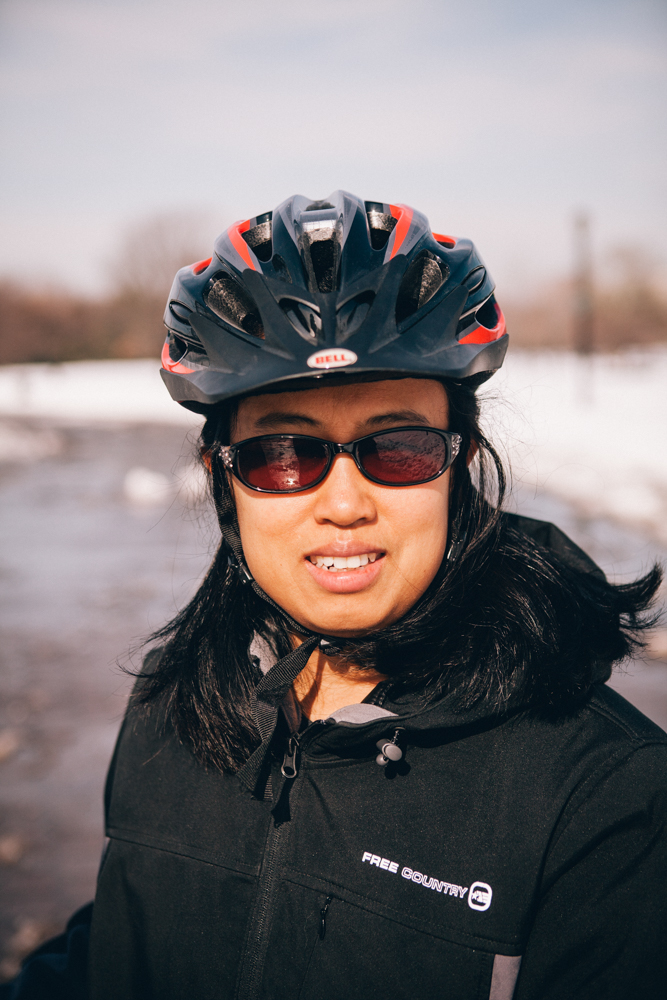
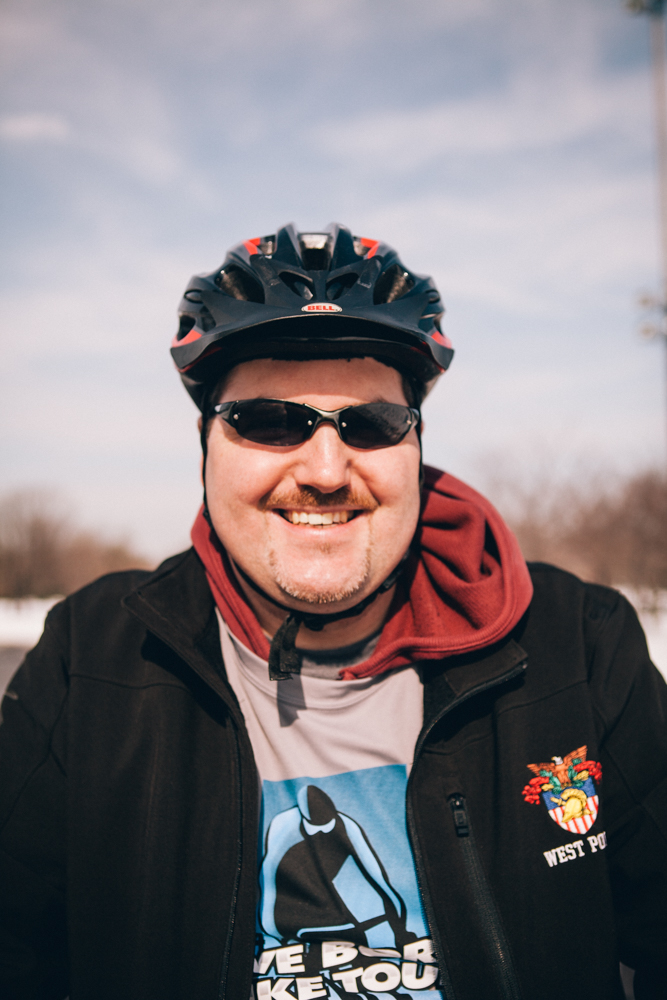
Is bike riding an important part of your relationship?
Maricar: Yes. We enjoy it. We’re two different people, but we’re similarly enthusiastic about riding.
Don: And we can’t, like, go on a date to watch a movie. We’ll go out to a restaurant, but there are many things that other couples can do that we can’t. So we enjoy recreational activities together, like biking, swimming, or canoeing. We have a tandem kayak. She has a dog guide that will go with us.
We’re two different people, but we’re similarly enthusiastic about riding.
Are you looking forward to this year’s Tour?
Maricar: Yes, most definitely.
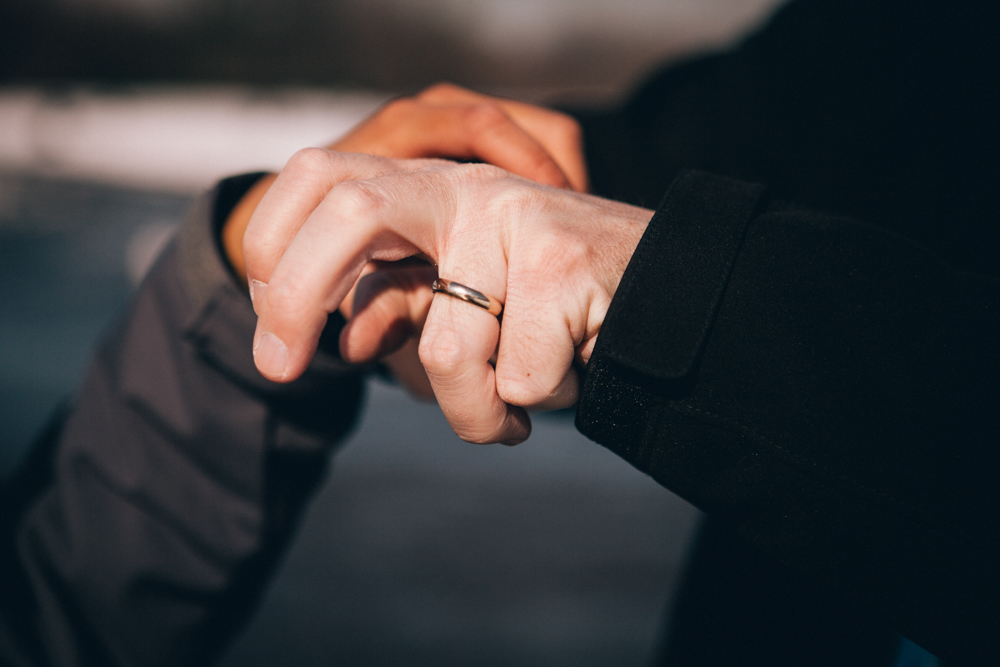
How does the TD Five Boro Bike Tour compare to other events for you?
Maricar: The Tour not only offers different environments, it has many different types of people riding. It gives people motivation to bike—it doesn’t matter if you just started biking yesterday or you’re an experienced rider. Before, when I ran the NY marathon, I touched all five boroughs; I don’t run anymore, but because of the Tour, I get to do it again in a different way.
The Tour gives people motivation to bike—it doesn’t matter if you just started biking yesterday or you’re an experienced rider.
Don: Yeah, I see so many different people riding the Tour… I see people on unicycles, on recumbents… you don’t know who has a disability! A lot of times, people will ride past us and say, “Hey, why isn’t she pedaling back there?” They’re looking for a response from her… but they don’t get one because she can’t hear or see them. I joke with them. I say, “Is she still back there?” When we get off the bike and they see us communicating, they’re like “Oh, I didn’t know!” It exposes people to a different world.
Well, thanks for introducing me to it.
Don: It was our pleasure!
